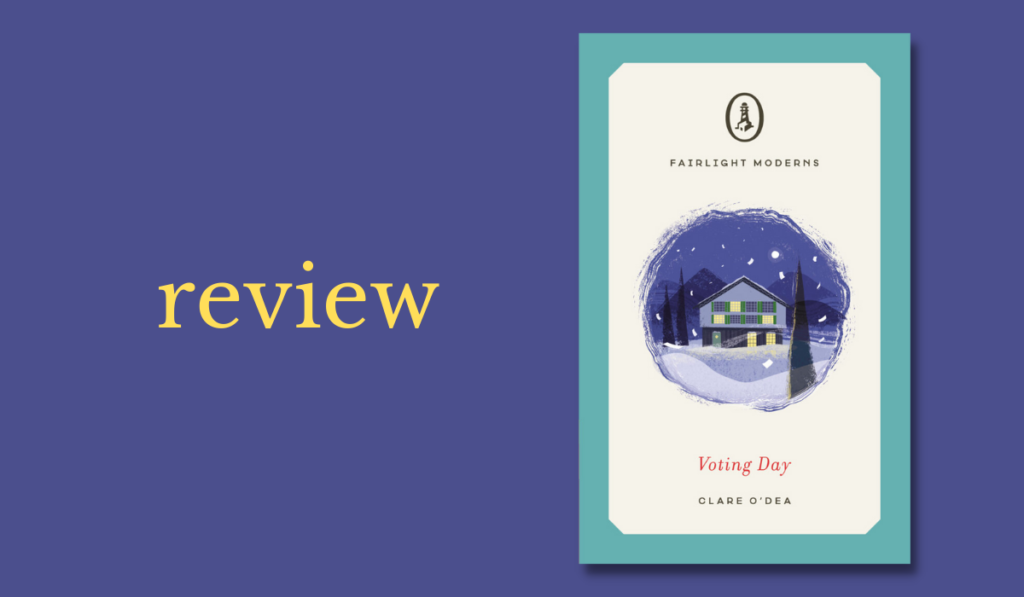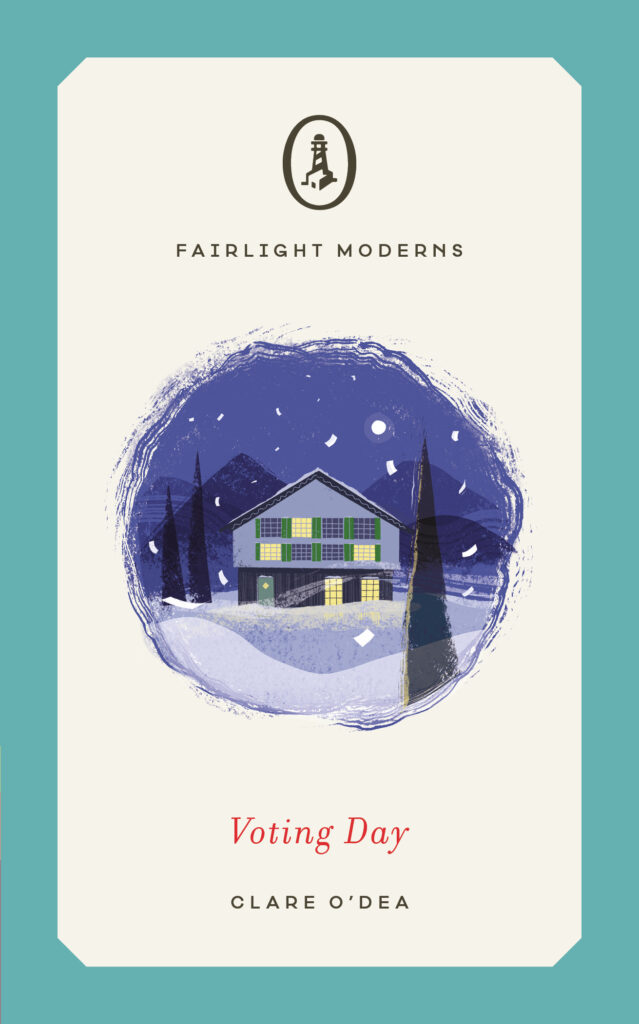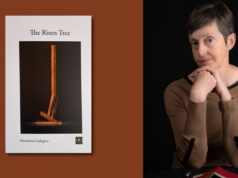
Voting Day|Clare O’Dea|Fairlight Books|ISBN: 978-1-914148-07-1|€9.99
“…a fascinating piece of history that packs a punch”
—Susan McKeever reads Voting Day, by Clare O’Dea, a snapshot of when men in Switzerland voted on women’s suffrage.
On the morning of February 1st, 1959, Vreni—whose husband is a farmer—is hard at work; she’s trying to get through her chores before she can catch the bus and train to Bern to be with her daughter, Margrit.
Frantically grating potatoes for her famous, labour-intensive rösti, which her family will eat for their Sunday breakfast, Vreni’s heart is light as she dreams about her imminent escape.
In her life, ‘one week blurred into the next as nature crawled predictably from season to season’ and it is ironic that her rare break is only to receive surgery for her prolapsed womb, an operation which will require six weeks of rest once it’s done.
Voting Day
But something else is happening on this day: the men of Switzerland will be voting on a referendum to decide whether or not the country’s female citizens should have the right to vote.
It’s the eponymous ‘voting day’ and the only function Vreni has on this—or any—voting day is to make ham sandwiches for the workers manning the ballot boxes.
It’s clear that Vreni’s husband, Peter, is not on the women’s side: his eldest son Ueli will get to vote for the first time and, predicting what Ueli will do, he quips that ‘He’ll be doing the right thing for … a country that has been well ruled by decent men for seven hundred years … The envy of Europe.’
Compromising lives
This is our way into a chronicle seen through the eyes of four different women who, we find as the story progresses, are inextricably linked in different ways.
The focus is not on the voting day per se, but we see from the different stories that each of these women have had to compromise their lives in subtle ways in what is an outdated, unequal society.
As a young girl the now-downtrodden Vreni was lively and bright, hoping for an interesting future, but as time went on her options dwindled and it seemed marrying a farmer was the best option.
Margrit
On the surface, Margrit seems to be successful – living independently and working in the city as a bookkeeper, qualified and not tied to a future on the farm.
But in a world ruled by men, she struggles with daily harassment and even blackmail from her boss, and must live in small, dingy lodgings.

Esther
We meet Esther as Vreni checks into the hospital where she works as a cleaner. Born into the Yenish ethnic minority community, she was taken from her family as ‘Somebody, somewhere, decided that our little home was too full and too free.’
Doubly blighted by her background and the prevailing patriarchal dominance, she finds herself as a penniless, deserted wife whose beloved child is taken into foster care – with Vreni’s family as it happens, working as a farm hand.
Beatrice
Lastly there is French-born Beatrice, older and more independent than the preceding women, but also left with limited choices – for instance, her brother was given the better education.
Beatrice fervently supports women’s suffrage, and as a high-up administrator at the same hospital, has taken Esther under her wing and is campaigning to help her get her now ten-year-old son back.
An important story
In a rather neat all-boxes-ticked epilogue we learn the fates of the four women one year on. The famous vote on that Sunday in February had ruled against women’s suffrage by 67 per cent, and astonishingly, women would not receive this basic right until 1971.
This is a fascinating piece of history that packs a punch by being swiftly delivered in its slim novella form; O’Dea’s device of creating four very different characters who we follow on one day with the voting agenda as a backdrop is clever.
But I found myself wanting more substance. I wanted to feel more empathy or connection with those characters. I wanted more dimension, I wanted to care more. But for all that, it’s an important story, and a shockingly recent one and, as O’Dea says in her Author’s Note, ‘One thing is certain, I’ll never take voting for granted.’

Susan McKeever is an editor, writer and ghostwriter for several Irish and international publishers and authors. She works from her home in the red-brick heart of Dublin’s Portobello. @MckeeverSusan, susanmckeever.biz












